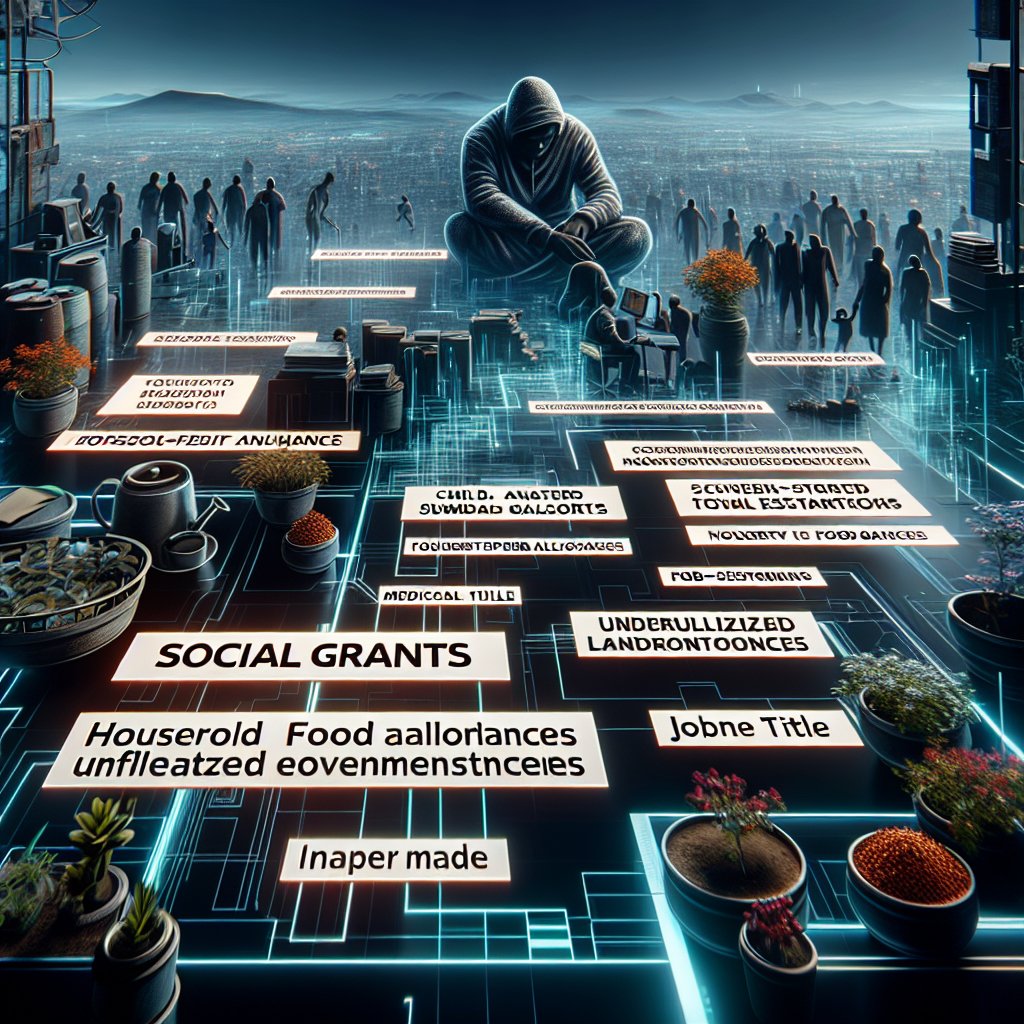Image created by AI
South Africa Grapples with Severe Cost of Living Crisis as Calls for State Intervention Intensify
South Africa is currently experiencing a severe cost of living crisis, which has sent shockwaves through its most vulnerable populations. The gravity of the situation is such that without significant state intervention, poverty-stricken families are facing an untenable future. Recent data underscores the stark reality that South Africa's poorest citizens are reliant on government assistance to make ends meet, with social grants only enabling them to scrape by without the means to genuinely improve their livelihoods.
An essential move proposed is increasing the child support grant, aligning it with the food poverty line and expanding its scope to include pregnant mothers and learners till the completion of their National Senior Certificate. Furthermore, forging partnerships with private doctors to expedite medical assessments for disability grant applicants has been highlighted as a possible method of easing the suffering of those in need.
Transforming the social relief of distress (SRD) grant into a job-seeker's allowance, mandating evidence of employment pursuit, could potentially link social support with active economic contribution. This approach can only be sustainable if tied to economic growth and sufficient tax revenues.
According to the Household Affordability Index, even individuals on the lower rungs of the income ladder are struggling to cover basic expenses. The Democratic Alliance (DA) has echoed the findings, citing regular encounters with despaired individuals who not only face difficulties in obtaining their grants but also struggle with obtaining employment, accessing transportation, and affording ancillary costs that impact their dignity and health.
The government's current reliance on social grants as its primary intervention must be revised, and the call is for a multifaceted approach that encompasses improving access to nutrition. It involves expanding the zero-rated food basket and slashing bureaucratic hurdles for informal trade, particularly for staple foods, to facilitate community-level economic empowerment.
Revitalizing local economies could also come from endorsing food hubs, supporting the cultivation of household food gardens, and accelerating the issuance of property titles to foster wealth creation. Additionally, maximizing the use of currently underutilized state-owned lands for land reform initiatives aimed at residential and agricultural projects has been suggested.
Investing in youth development to enhance employment prospects constitutes another cornerstone for a long-term strategy, coupled with reforming the National Student Financial Aid Scheme (NSFAS) to encompass the “missing middle”—students currently excluded from higher education opportunities due to financial constraints.
Lastly, there is an outspoken recognition that the society's well-being is inherently linked to the support and upliftment of its most vulnerable members, necessitating determined and inclusive efforts to inject hope and tangible improvement into the lives of South Africans living in poverty.










